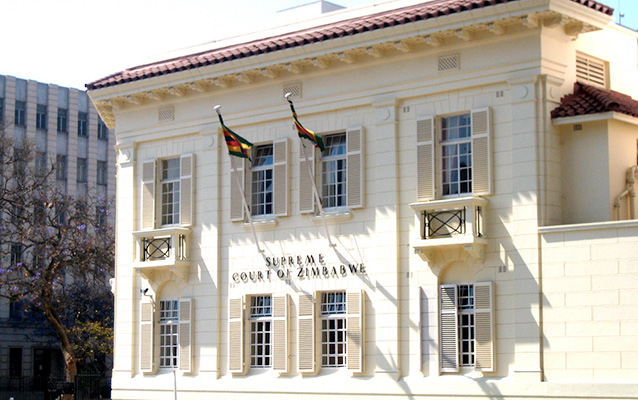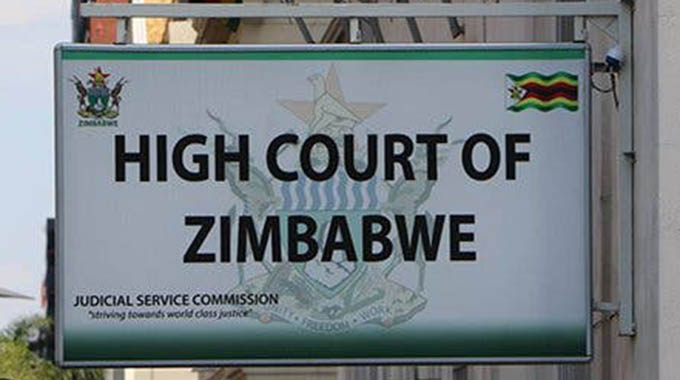Farmers contest offer letters ruling

 Daniel Nemukuyu Senior Court Reporter
Daniel Nemukuyu Senior Court Reporter
The Supreme Court has referred a group of white farmers to the Constitutional Court in a case in which they are challenging a law barring them from seeking legal recourse over Government’s compulsory acquisition of land for resettlement.
Legal experts say the case is a stark example of problems the State will face in implementing policy if it does not speedily align laws to the new Constitution adopted last year.
The former farm owners seek a review of a 2010 Constitutional Court judgment which declared that anyone clinging onto land acquired by the Government was breaching the Gazetted Lands (Consequential Provisions) Act and that they had no right of audience in the courts.
The former farmers argue that the landmark judgment, passed by the bench led by Chief Justice Godfrey Chidyausiku, is at variance with Section 69(3) of the new Constitution as read with Section 85(2).
Section 69(3) of the new Constitution reads: “Every person has the right to access to the courts, or to some other tribunal or forum established by law for the resolution of any dispute.”
Section 85(2) reads: “The fact that a person has contravened a law does not debar them from approaching a court for relief under subsection 1”.
The former farm owners say this means the constitutionality of their evictions under the land reform programme is contestable and that holders of offer letters first need court orders to occupy farms. In terms of the law, a former owner has to vacate gazetted land within 90 days of publication of an acquisition notice. Failure to do so attracts prosecution.
The Supreme Court’s Justice Paddington Garwe yesterday referred to the Constitutional Court the case in which a German-owned company, Forrester Estate Private Limited, is challenging the 2010 judgement against the Commercial Farmers Union.
Forrester Estate is challenging eviction from Elsinora Farm in Mvurwi to pave way for 12 indigenous farmers.
Forrester Estate’s lawyers Mr Joshua Shekede and Advocate Lewis Uriri successfully applied for referral of the case to the Constitutional Court for a review of the CFU judgement, which is being relied on by the State in evictions.
Adv Uriri said his client wanted the Constitutional Court to determine whether or not its decision barring former owners from seeking spoliatory relief in cases where holders of offer letters occupy the land without a court order was constitutional.
In terms of the judgement, former owners who refuse to vacate gazetted land are already in breach of the law and thus cannot approach courts because they have “dirty hands”.
Adv Uriri said the reasoning might be correct in terms of the old Constitution, but the court had to decide on whether or not the decision did not violate the access to court provided for under Section 69(3) of the new Constitution as read with Section 85(2).
These two sections appear do away with the “dirty hands” principle. The principle essentially holds that a person/entity must first comply with the law before seeking to challenge it.
In November 2010, the Constitutional Court dismissed a challenge by the CFU and nine others on the constitutionality of compulsory acquisition of land for resettlement.
Judgement SC 8/10 spelt out the law on the acquisition of land and declared, among others things, that an offer letter, permit and settlement lease were the only legitimate documents entitling anyone to occupy farm land.
The judgement upheld prosecution of former farm owners who refused to vacate gazetted land.
The white former farm owners were all held to be in breach of the law by continuing to occupy gazetted lands and they were all barred from approaching the courts for recourse because they had “dirty hands”.
CFU members also claimed they were being discriminated against on racial grounds, as only white farmers were being prosecuted for occupying gazetted land.








Comments